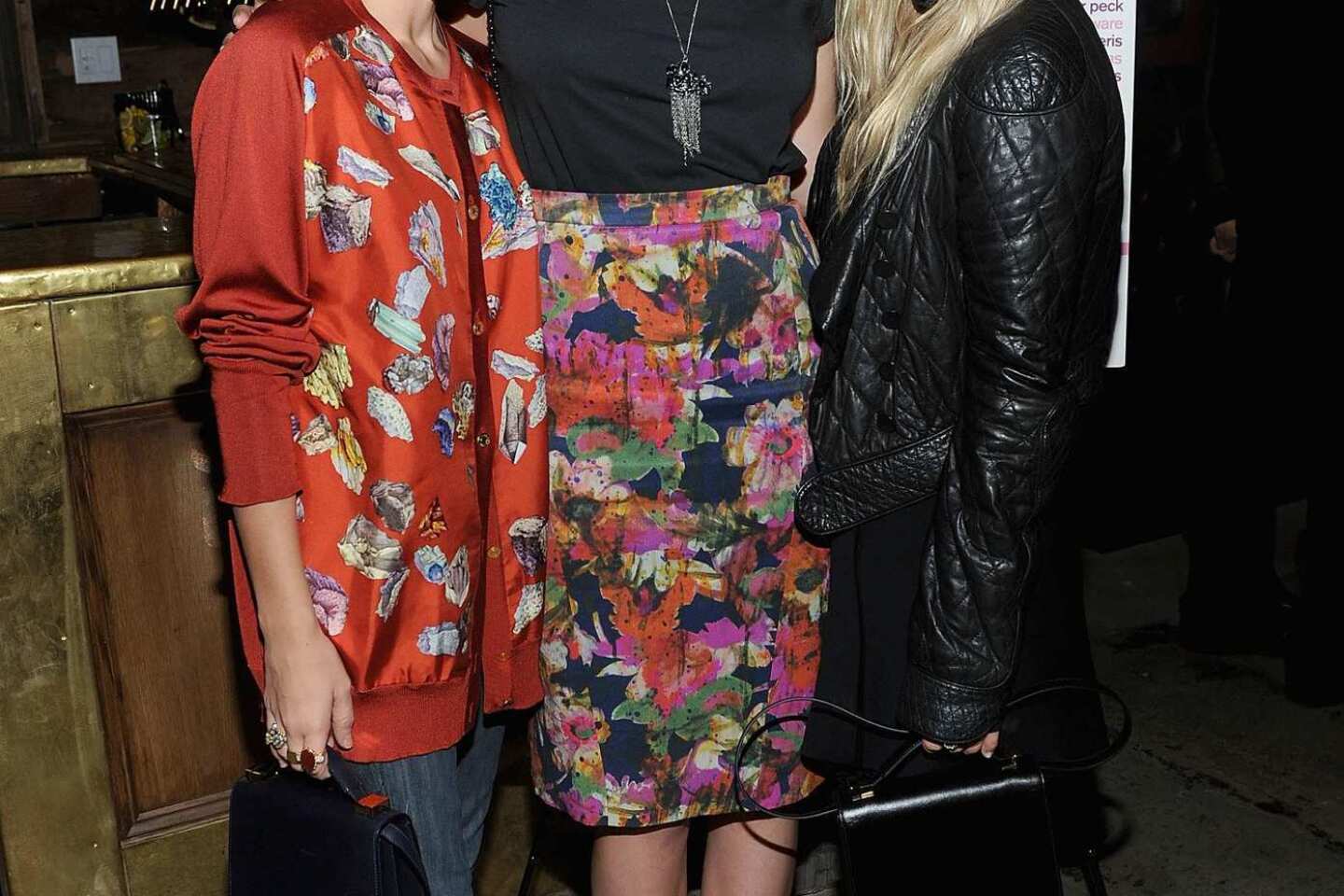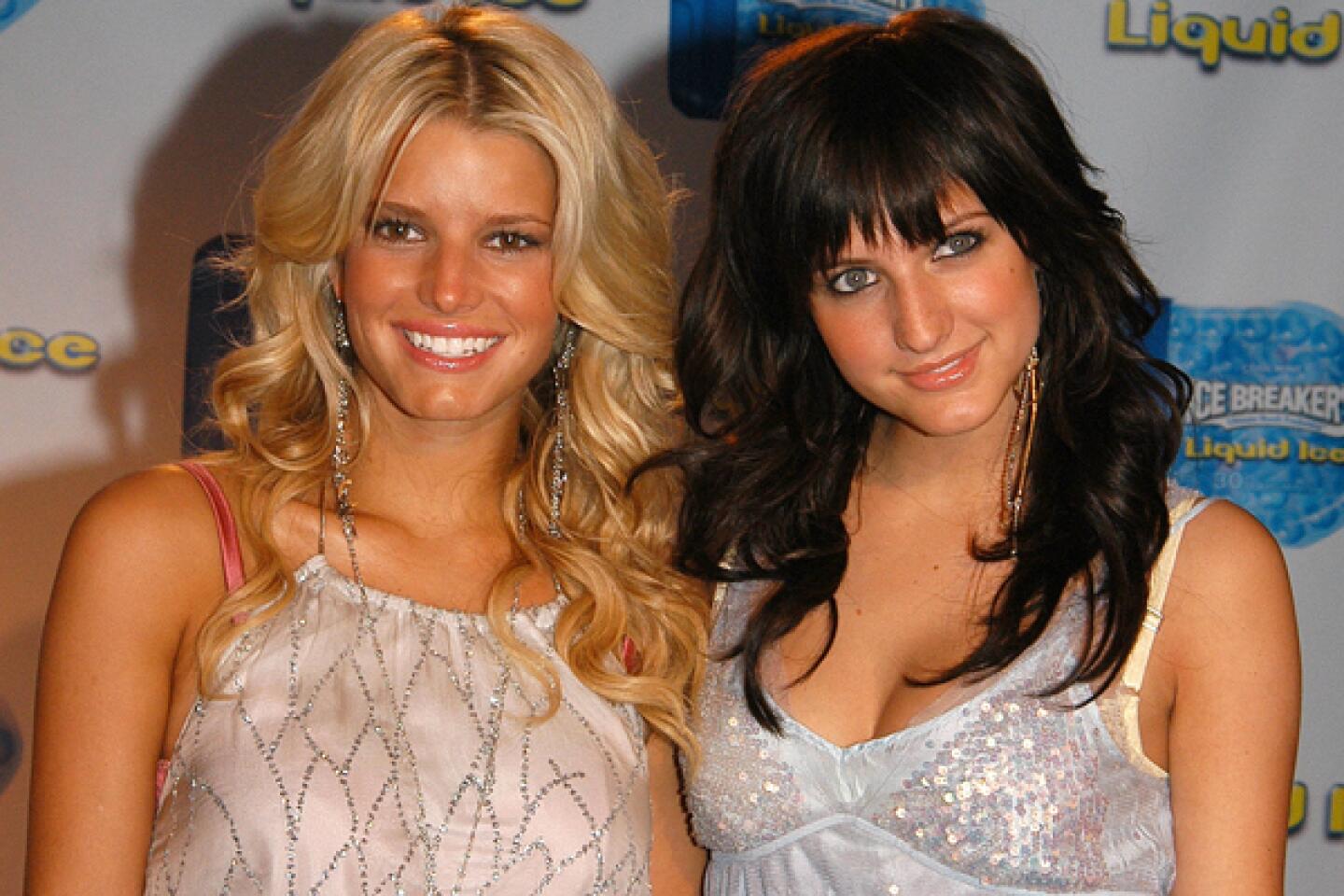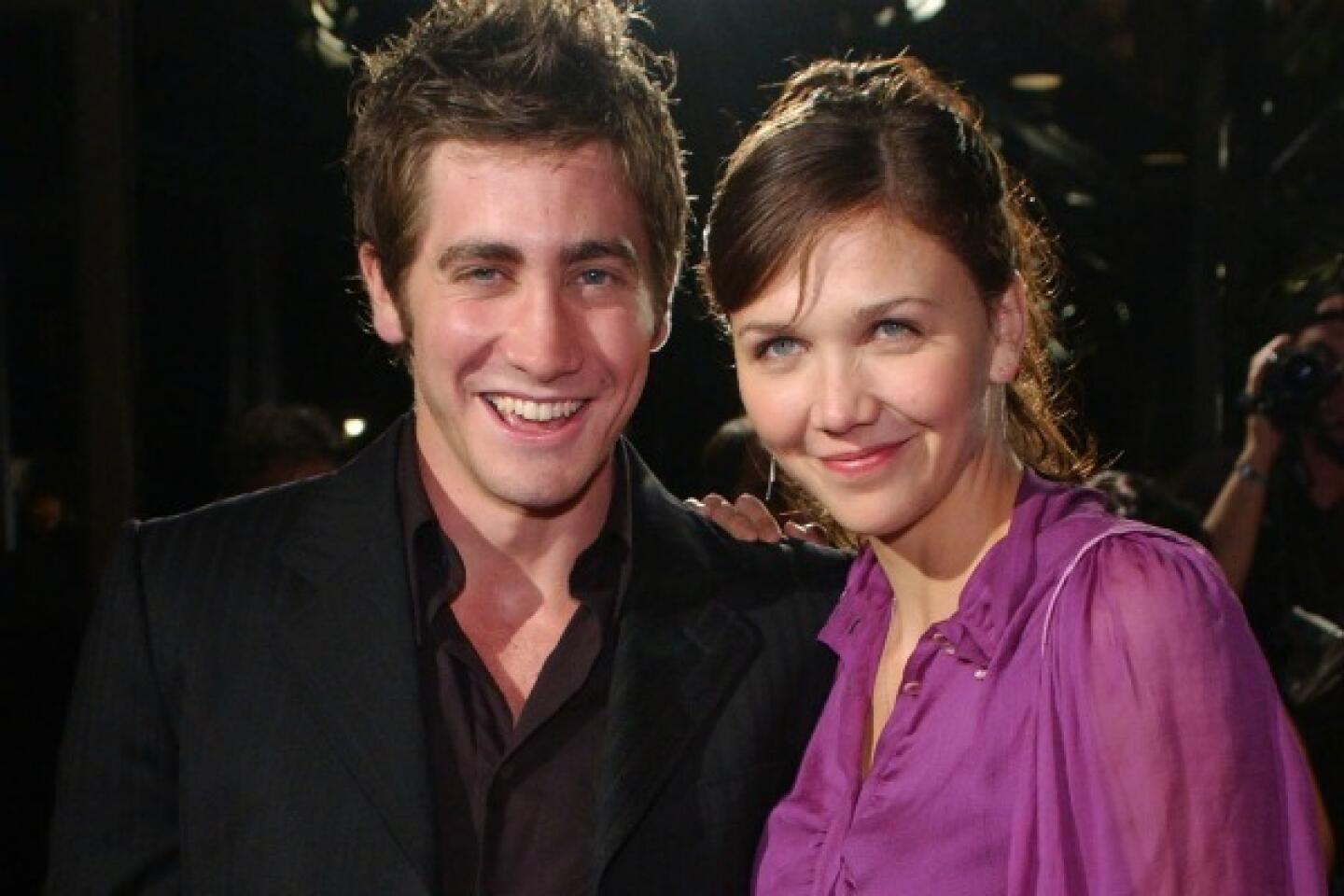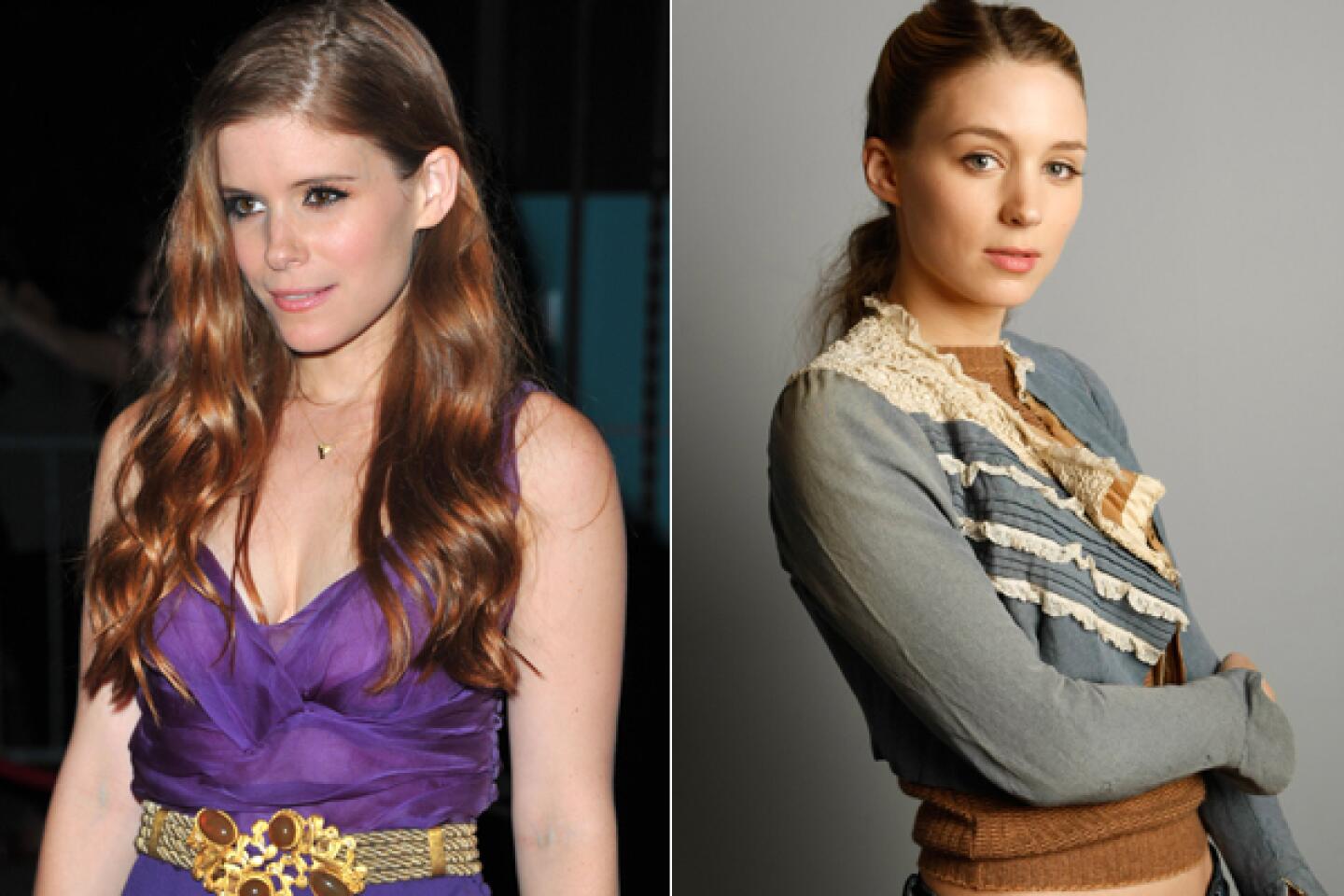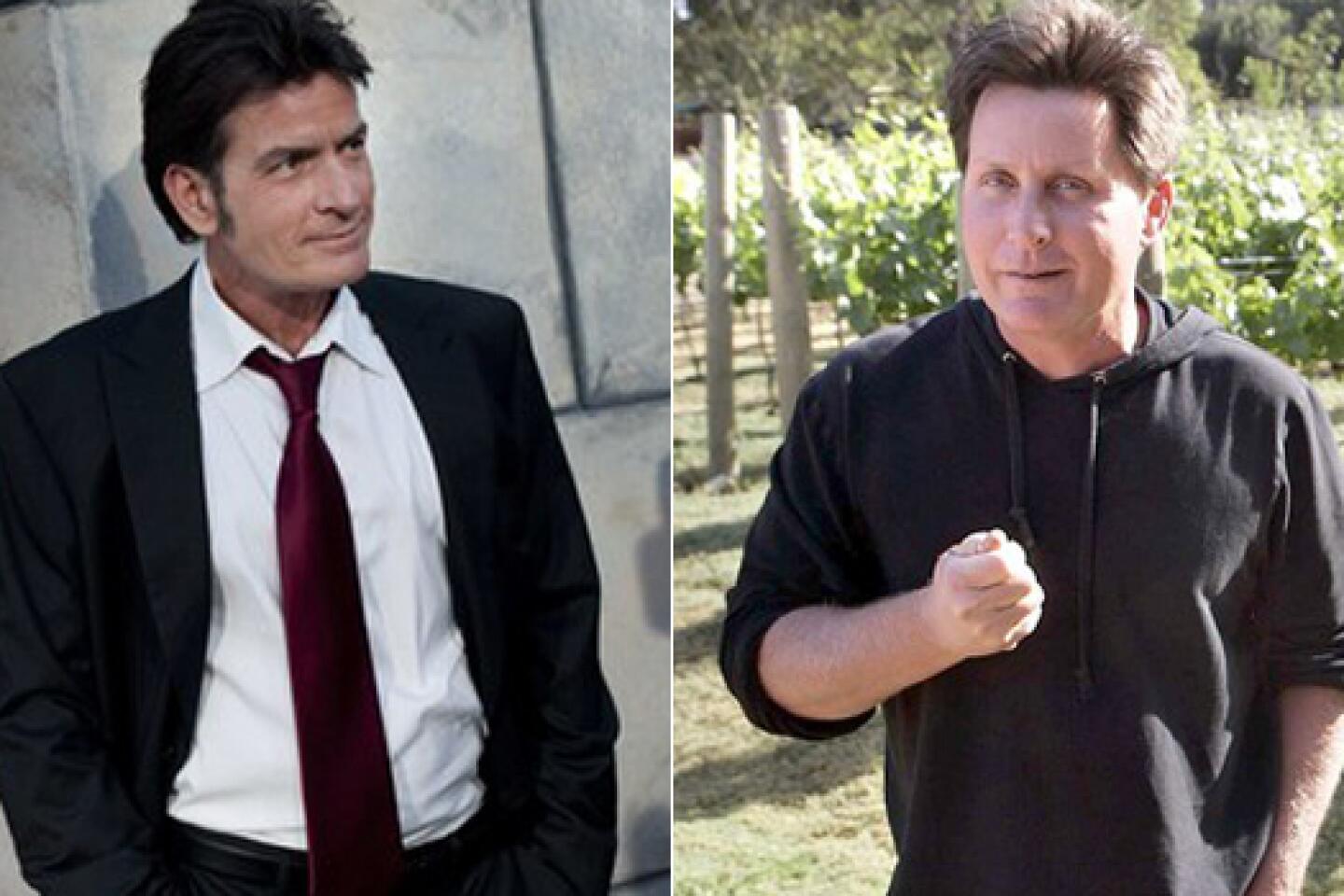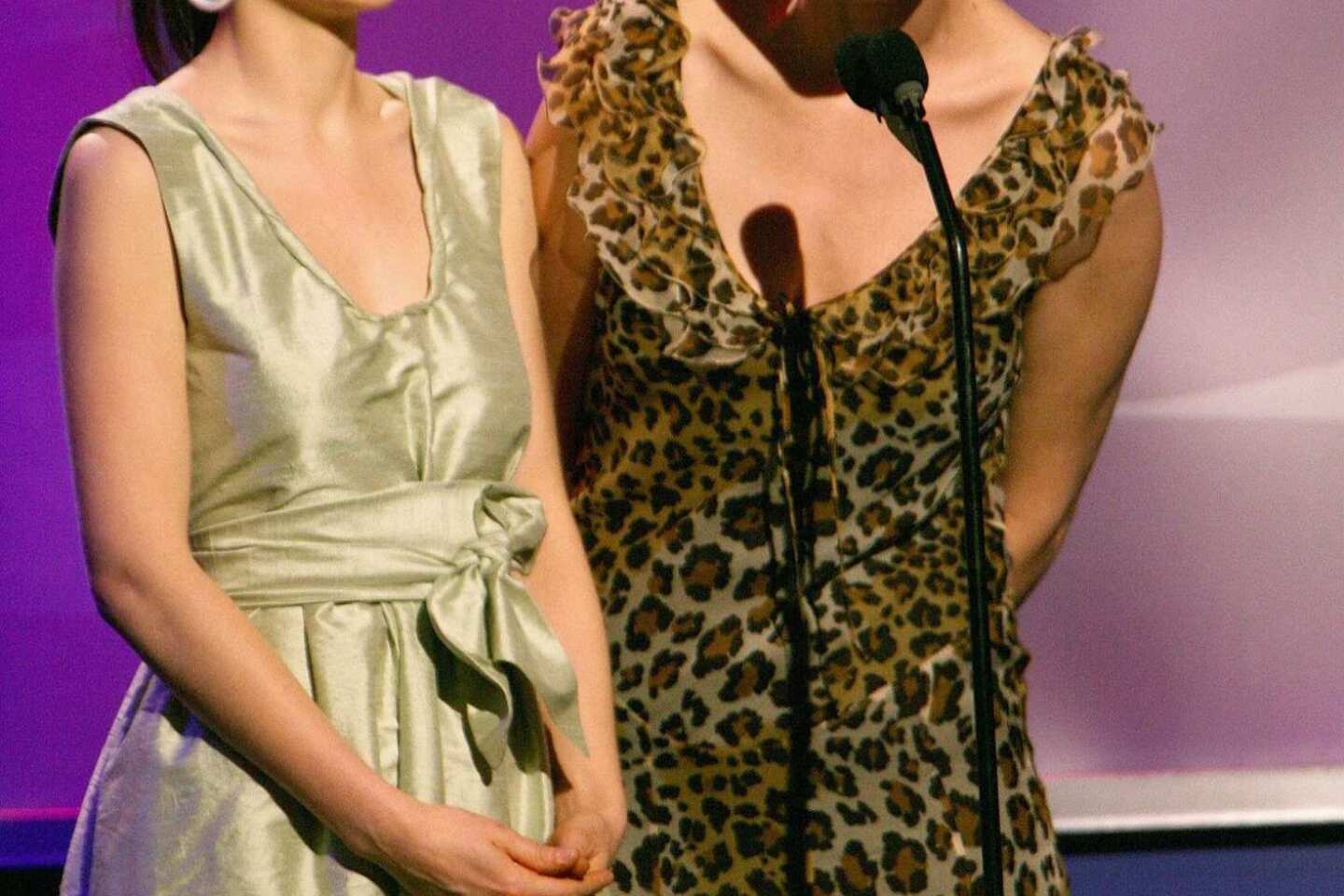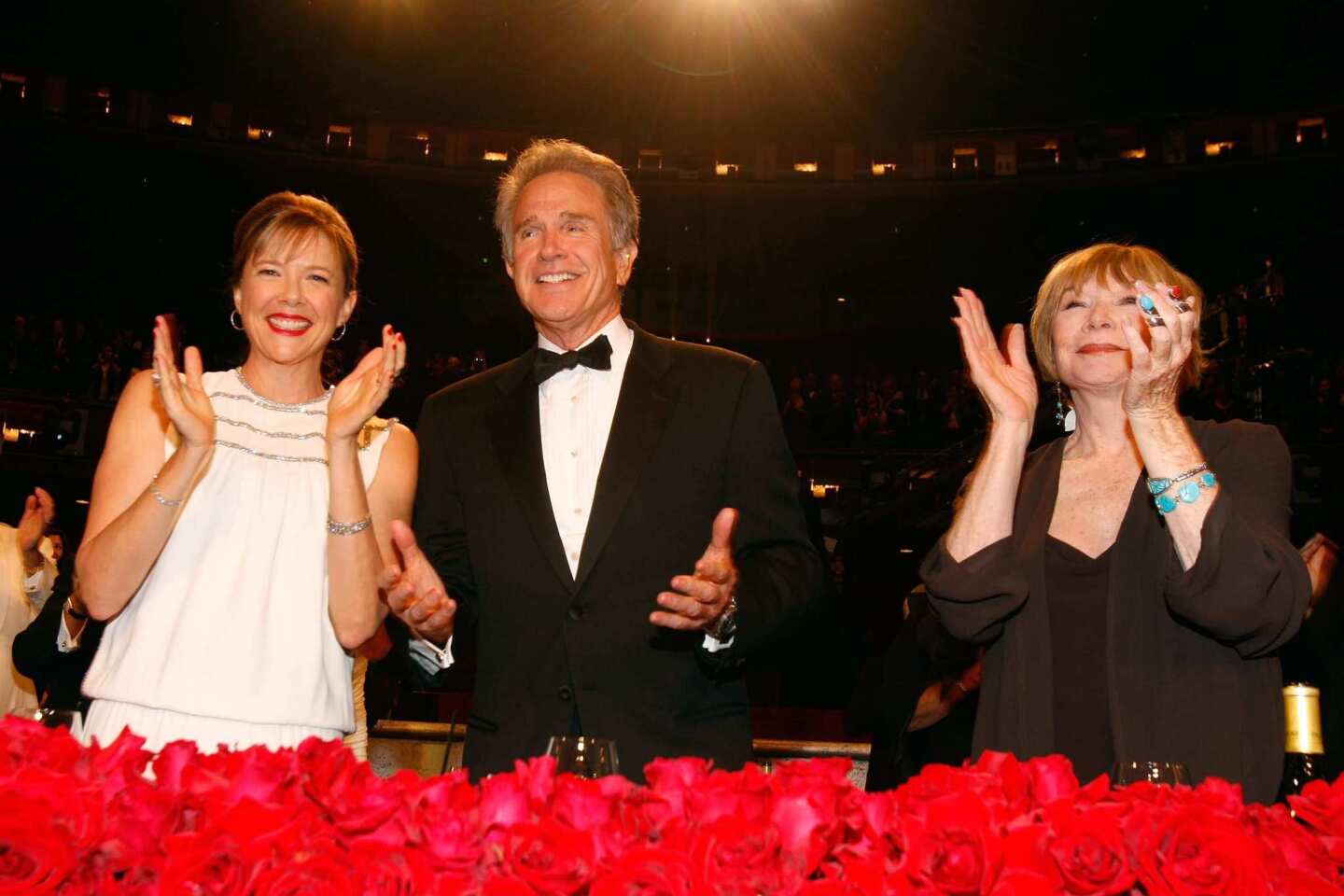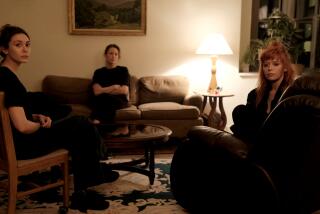No sibling rivalry for Elizabeth Olsen
Reporting from New York —
Elizabeth Olsen recently experienced something that had never happened to her: She was recognized by a stranger.
“It was really weird. I was walking in Tribeca and a guy just came up to me and said, ‘I just saw the trailer for your movie, and I’m really looking forward to it,’ and then he kept on walking,” the young actress recalled.
Then she added uncertainly, “I hope he wasn’t confusing me with someone else.”
That she would find this exchange exciting might seem, well, really weird in its own right. Olsen is the younger sister of those Olsens, the tabloid fixtures Mary-Kate and Ashley. She’s spent a lifetime watching her sisters hounded by TMZ, pursued by autograph-seekers, roasted by late-night hosts. But she’s avoided the limelight.
Walking around Greenwich Village, the outgoing 22-year-old might as well be just another NYU acting student, albeit one who happens to have spent parts of the past year shooting films. She has some of the same facial features as her famous sisters, but like so much in her life to this point, nothing about her suggests that she’s related to the entertainment world’s most famous twins.
“‘You mean, there’s another one?’” actress Sarah Paulson said, laughing, as she recalled her reaction upon hearing about the third Olsen sister for the first time, before the pair began shooting their movie “Martha Marcy May Marlene.” “Where have they been hiding her?”
With her starring turn in Sean Durkin’s challenging indie, Olsen’s anonymity won’t last much longer. Anchoring a drama that has drawn acclaim at the Sundance and Cannes film festivals, Olsen plays Martha — the other monikers are given to her by John Hawkes’ rough-hewn cult leader, Patrick — a complex, vulnerable young woman grappling with a traumatic past. She delivers a remarkable performance, the sort that gets your attention for a lot more than her last name.
As the film, which Fox Searchlight opens Friday in Los Angeles, quietly begins, Martha can be seen wandering disoriented into a small-town diner from the compound where she’d been living with Patrick and his other followers. She’s soon retrieved by her tightly wound sister Lucy (Paulson) and whisked to the upscale lake house Lucy shares with her Wall Street husband, Ted ( Hugh Dancy). While Martha is ostensibly safe with them, it’s not long before the effects of her cult stay — which Durkin depicts in carefully modulated flashbacks — begin to surface.
Olsen’s job isn’t easy: She’s portraying someone strong enough to walk away from the group yet sufficiently weak to be drawn in by it.
“Even though the part called for someone who’s been through a lot, I didn’t want it just to be a victim,” said the soft-spoken Durkin, 29, a first-time feature filmmaker who on a late-summer day accompanied Olsen, who goes by Lizzie, and a reporter on a walk around downtown Manhattan and then to the Museum of the Moving Image in Astoria, Queens. “What I wanted was someone who had a lot of autonomy but just sort of had it repressed.”
Durkin recalls how Olsen arrived at her audition with four giant suitcases — the accouterments of a frazzled college junior more than Hollywood royalty. “I think I had my detergent with me,” Olsen said. She had had to move out of her apartment the same day, and though she’d stashed some things with Mary-Kate, she was heading to a film set and was essentially homeless.
“When the audition was over, I was expecting some big dude to come in and carry her stuff,” Durkin said. “But when I asked her, she’s like ‘Nope,’ and threw some bags over her shoulder. There was something very vibrant and determined about her.”
He gave her the part.
Olsen has been trying to go her own way for a while. Growing up with famous siblings made it clear to her early, she said, that she wanted a different career. “They were trying to build a whole [fashion and brand] enterprise. And I was trying to be an actor,” Olsen said.
Mary-Kate and Ashley Olsen declined to comment.
Even though she grew up watching her sisters on sets — and moved in a circle that had her going to Halloween parties at the home of Hollywood makeup artist Rick Baker — it was trips to Broadway that gave her the acting bug. One or both of her parents (the Olsens divorced just before Lizzie started grade school) would take the three girls and their older brother, Trent (yes, there’s a fourth Olsen sibling) from Los Angeles to New York, where they would frequently see plays.
It didn’t hurt, ether, that Lizzie Olsen has a natural craving for attention. Upon seeing a clip from “Meet Me in St. Louis” at the museum, she ran up to the screen, belted out a verse from the musical and curtsied. “The irony is that I was always the performer in the family,” she told a reporter.
But she didn’t want to take roles “in small things, like direct-to-VHS movies” (something her sisters, incidentally, had no problem doing, in twin-tastic movies such as “It Takes Two” and “Passport to Paris”). When producers asked if she wanted in — and it happened regularly, Olsen said — she often turned them down.
“She could have piggybacked on her sisters’ success, maybe gotten a producer to cast her in a movie with them,” Paulson said. “But she didn’t. You couldn’t even find a picture of her on the Internet until recently.”
Added Hawkes: “I think the word is ‘grounded.’”
Instead, Olsen would understudy Broadway shows and even went to Moscow on a theater exchange program. It wasn’t until she was an upperclassman at NYU that she began auditioning for films.
She has since made up for that restraint by shooting five independent films, including a comedy directed by actor-filmmaker Josh Radnor and a Bruce Beresford film, “Peace, Love & Misunderstanding,” which was coolly received at the Toronto Film Festival.
She’s also tried to avoid the route taken by Selena Gomez and other contemporaries — she’s stayed off Twitter (“your personal space is your personal space”), and she auditioned for the Disney movie “Prom” and found herself laughing about it. “I just couldn’t take it seriously,” she said.
Olsen says she’s annoyed by most of the roles written for young women. “They’re supposed to be either as perfect as how they’re portrayed on Disney or as mean as they’re portrayed in high school movies. And in real life it’s neither of those.”
Hawkes, nominated for an Oscar for his supporting role in the gritty 2010 drama “Winter’s Bone,” called Olsen “tireless” in toggling at one point between the “Martha” and “Peace” sets. “I worked with Jennifer Lawrence [on ‘Winter’s Bone’] not that long ago and saw her phenomenal performance — and it felt like it was happening again: a young, unknown woman was carrying a movie.”
Durkin took a “Winter’s Bone”-like approach in crafting “Martha Marcy May Marlene.” In writing the script, he wanted to break from stereotypes surrounding cults (he was careful not to even use the word); he shot some of the cult scenes on a farm belonging to an uncle of one of the filmmakers. The location fit with the film’s micro-budget.
With its meditative tone and ambiguous ending, the movie isn’t an obvious blockbuster, and Olsen has been doing her part to help promote its release. But a life spent watching her friends and sisters has given Olsen a lukewarm attitude about publicity.
“I used to think publicists were just a wall between you and the public,” she said. “What I’m now realizing is that you need to put yourself out there, and people are going to want to know about your movie, but they’re also going to ask you about fashion and about your life and your family.
“When I was in high school I started to get a little insecure about [questions about the Olsen twins],” she said. “And if I started acting professionally [then] I might have been scared or gone about it differently. But now I feel like I’m a realized person,” sounding, like many in her generation, 22 going on 40.
She’s also changing in another way, showing an actor’s penchant for letting public expectation translate into private pressure.
“I am a little worried that if the first movie that’s coming out is so [well regarded] then people expect everything to be good,” she said.
“It’s a good problem to have,” Durkin reassured her.
“I guess,” Olsen replied. “But you can only go downhill.”
More to Read
The biggest entertainment stories
Get our big stories about Hollywood, film, television, music, arts, culture and more right in your inbox as soon as they publish.
You may occasionally receive promotional content from the Los Angeles Times.
